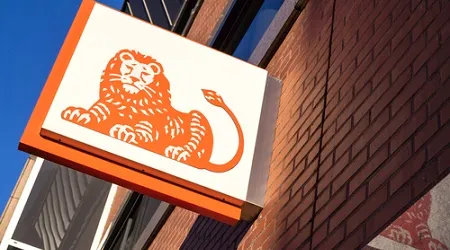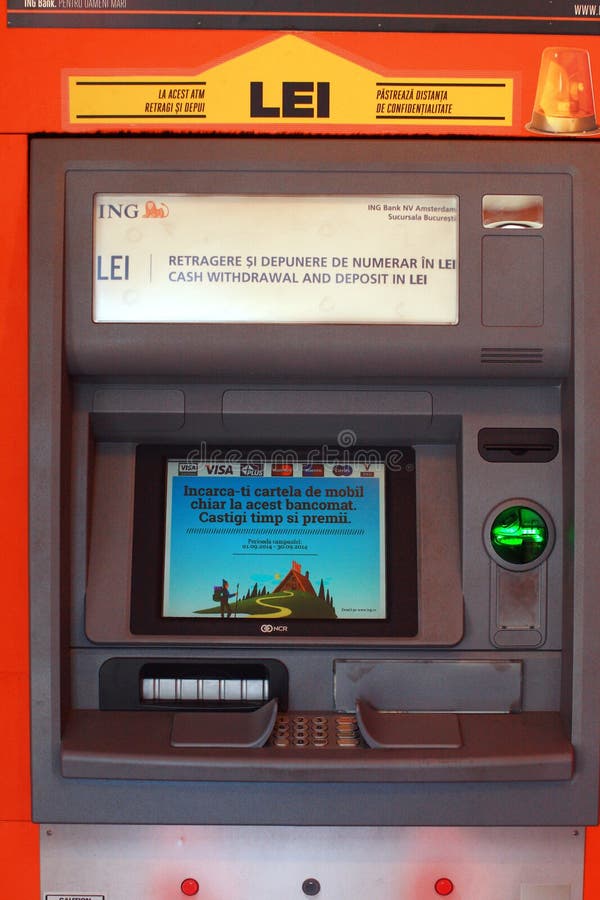Ing Deposit Cash
You can deposit money on your account by using the handy Cash In/Cash Out (Self’Bank) machine. Find a Cash In/Cash Out machine in your area. Withdrawing or depositing cash at the counter of an ING branch. If you have a complaint, please call us on 133 464 at any time as we have procedures in place to help resolve any issues you may have. Deposit and savings products are issued by ING, a business name of ING Bank (Australia) Limited ABN 24 000 893 292 AFSL 229823. Go to the bank and get a safe deposit box. I will explain what that is, in case you do not know. A safe deposit box is a metal box in a room at the bank. Your box and many others reside there.
You can withdraw money from a Self'Bank or one of the many ATMs showing the Bancontact/Mister Cash/Maestro logo.

- You can generally withdraw up to 650 euros per transaction at a Self'Bank.
- Amounts between 2,000 and 5,000 euros: withdraw the cash in several transactions at a Self'Bank.
- Amounts from 5,000 euros: send your details and the amount you wish to withdraw in advance to an ING branch with a counter. You can then withdraw the cash on an agreed date at the branch.
- You don't have an ING debit card, or you have reached your card limit? As an ING customer, you can request a Minute Card allowing you to make a single withdrawal of up to 5,000 euros from a Self'Bank.
- Abroad: you can also use your debit card to withdraw money from ATMs showing the Maestro or Cirrus logos. Read more about payments on holidays.
The amount you can withdraw with your debit card depends on your personal card limit and your account balance at the time of the withdrawal.
Not an ING customer yet? Find out how easy it is to switch to ING free of charge!
ING's head office is situated in Amsterdam, the Netherlands.
Steven van Rijswijk is the CEO and chairman of the Executive Board of ING. He started in the role on 1 July 2020 and has been a member of the Executive Board since 2017.
ING Group was created in 1991 through the merger of the Dutch insurer Nationale-Nederlanden and the Dutch bank NMB Postbank Groep. More information: History of ING

Since June 2009, ING has a Management Board Banking; reporting to the Executive Board.
We have designated three distinct categories of markets and have developed our strategy accordingly. They are characterised as Market leaders, Challengers and Growth markets.
Market Leaders are the Benelux countries (Netherlands, Belgium and Luxembourg) where we have leading market positions in retail banking and wholesale banking.
Challengers are the following countries: Germany, Austria, Spain, Italy, France, Australia and Czech Republic. In challenger markets we strive to strengthen our market position. Our business units offer both retail and wholesale banking services.
In Growth markets, we offer a full range of retail and wholesale banking services in strongly expanding economies that offer good growth opportunities. Growth markets are Poland, Turkey, Romania, the Philippines and our business units in Asia.
We provide a range of products and services to support our customers’ needs. We offer retail banking services to individuals, SMEs and mid-corporates in Europe, Asia and Australia. A full range of products and services is provided, albeit offerings may vary according to local demand. Internationally, our thriving wholesale banking network is active in over 40 countries. We operate a good mix of mature and growth businesses worldwide, which we believe provides both earnings stability and significant upside potential.
What’s the difference between ING Bank and ING Group?
Which banks are covered by the Dutch Deposit Guarantee Scheme (DGS)?
- Dutch banks operating under a license from DNB (the Dutch central bank) fall into the scope of the Dutch DGS. ING banks such as ING Bank N.V. have a license from DNB.
- The following branches of ING Direct N.V. are also covered by the Dutch DGS: France, Italy and Spain.
- The Dutch regulator DNB regulates Dutch banks strictly. Operating under a license from DNB, these banks are subject to strict rules. DNB actively monitors if banks abide to these rules. Money in current accounts, savings accounts or special savings accounts such as fixed-term deposits fall into the scope of the Dutch DGS.
I’m a customer of an ING branch in another EU Country. Is my money protected by the DGS?
- Dutch banks operating under a license from DNB (the Dutch central bank) fall into the scope of the Dutch DGS. ING banks such as ING Bank N.V. have a license from DNB.
- The following branches of ING Direct N.V. are also covered by the Dutch DGS: France, Italy and Spain.
- The Dutch regulator DNB regulates Dutch banks strictly. Operating under a license from DNB, these banks are subject to strict rules. DNB actively monitors if banks abide to these rules. Money in current accounts, savings accounts or special savings accounts such as fixed-term deposits fall into the scope of the Dutch DGS.
I’m a customer at an ING Bank which is seated outside of the Netherlands, which deposit guarantee scheme applies to me?
Yes. We have a set of ING Values which are part of the Orange Code – our manifesto that describes our way of working. Balancing the rights and interests of all involved is crucial to our ongoing viability. That means acting in ways that can stand the test of time and living up to the values we hold as true. By being explicit about our values, we tell the world this is how you can expect our employees to behave. With integrity above all as the overriding principle, our Orange Code was developed in 2014.
What is ING’s reaction to the revised Dutch Corporate Governance Code?
ING published a booklet, in which you will find the principles and best-practice provisions of the revised Dutch Corporate Governance Code and the way ING Groep N.V. applies these.
As recommended by the Frijns Committee, the implementation of the revised Code was discussed at the 2010 General Meeting as a separate agenda item. On 27 April 2010, the General Meeting approved ING’s implementation of the Dutch Corporate Governance Code.
KPMG is ING Group’s sole audit firm, performing the external audit of ING Group as of 2015.
The Supervisory Board’s proposal to assign the external audit of ING Groep N.V. and its subsidiaries to one single audit firm was approved by ING Group’s General Meeting on 11 May 2015. The decision allows ING to improve efficiency of the audit activities and to reduce audit costs.
Information on ING’s results can be found in the Investor Relations section, under financial results.

You can find the dates for our results and other financial events in the financial calendar in the Investor Relations section.
To receive press releases on a regular basis, sign up via our e-mail news service.
You can download annual reports, or order the ING Groep N.V. Annual Report on Form 20-F, on our Publications page.
Information about ING’s dividend policy and payments can be found here.
You can find ING’s credit and sustainability ratings on the Ratings page of the Investor Relations section.
Information about ING’s largest investors can be found here.
At ING, we apply various environmental, ethical and social principles when investing money on behalf of ourselves and of our customers. There are certain sectors and countries that are totally excluded from financing, like fur production, cosmetic animal testing or controversial arms industries. We check every transaction and every client against our environmental and social risk policies. If they don’t meet our standards, and aren’t willing to change, we don’t do the deal.
As we assess potential clients and deals, our approach is to have a dialogue and support clients in improving their environmental and social impact where possible. Our response to funding requests is often, “yes, but…”, outlining improvements that the company will have to make first. We feel that this is how we can make the most positive impact.
Check Our stance to see where we stand on specific issues.
Where does ING stand on issues like human rights, deforestation and animal welfare?

Our business activities have a significant influence on communities and the environment. It’s important for us to make the right choices in how, where and with whom we do business – and crucially, being transparent about the underlying principles that guide our daily business decisions. We have strict environmental and social risk policies that are applicable to all of our products and services. All ING entities, representative offices and companies that are under our control are to uphold our policies in all countries where we do business. Check Our stance to see where we stand on specific issues.
Climate change is one of the biggest challenges of our time. ING’s commitment and leadership start with our own operations, which are climate neutral. But as a bank, ING makes the most impact through our financing, via the money we loan to companies and customers. We have a loan book of about €600 billion across many sectors, which we have begun steering towards meeting the Paris Agreement’s two-degree goal. We call our strategy to get there the Terra approach. Read all about our approach to climate action.
How does ING apply international labour rights standards?
Having a workforce that reflects the diversity of our customer base and a working environment in which a diverse workforce can feel comfortable being themselves are important priorities for ING. Our employees should be unafraid to voice different opinions.
The human rights we consider fundamental and universal for our workforce include the right to freedom of association, the right to collective bargaining, and freedom from discrimination based on race, colour, sex, religion, political opinion and national and social origin. ING supports eliminating all forms of forced labour and child labour.
ING has had a Human Rights Statement for employees since 2006, expressing our commitment to support international labour rights standards. More detail can be found in our detailed Human rights and the workplace statement (PDF 184KB). You can also read more on our human rights page.
Deposit Cash In Ing Account
Need information that you cannot find on our website? Investor Relations are happy to help.
Cash Deposit Limit
If you are a journalist and need information that you cannot find on our website, Media Relations are happy to help.
ING is glad to consider applications from recent college graduates and professionals. Feel free to send an application directly to the business unit of your choice. Check the Careers site for more information, including the most recent international job openings.